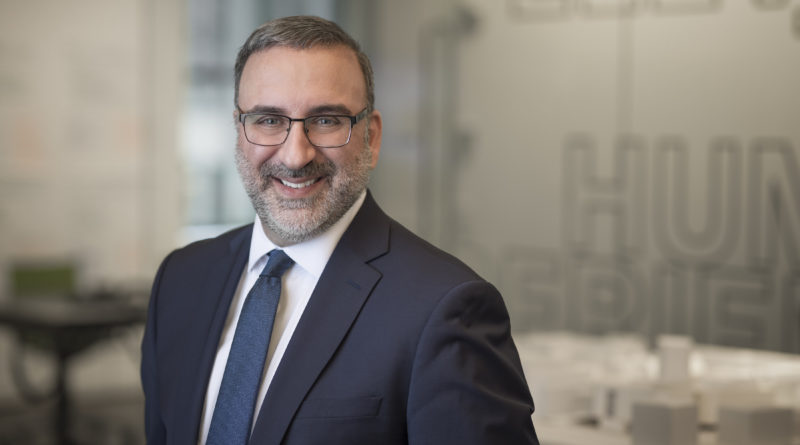Dominick Roveto
DLR Group recently welcomed Principal Dominick Roveto as Science+Technology Leader to drive growth for the firm’s Higher Education, Workplace, and Healthcare sectors. Working from the New York City studio, Roveto takes an active role in shaping the Science+Technology approach by creating technical, interactive environments that allow various scientific and academic disciplines to collaborate.
As Science+Technology Leader, Roveto guides the direction of the firm’s initiatives, reinforcing DLR Group’s programming, planning, and design of laboratory facilities. As an integrated design firm, DLR Group is uniquely positioned to listen to its clients’ needs and to design complete environments in support of their missions. From advancing new vaccines (University of Iowa, Bowen Science Building) to developing medical devices that improve hearing (Cochlear North American Headquarters) to reducing turnaround times on medical specimen testing (Vanderbilt University MetroCenter Lab), its planners and designers aim to create spaces that provide room for innovation and discovery.
Over the past three decades, Roveto has dedicated his time to ensuring scientists have the laboratory and community spaces they need to advance research. A proud mentor and member of the Society for College and University Planning (SCUP) North Atlantic Regional Council, Roveto has completed laboratory renovations, basic science buildings, and interdisciplinary institutes at renowned academic institutions like Harvard University and Massachusetts Institute of Technology. He has also worked with notable life science companies such as Pfizer and Eisai. Roveto’s impact at DLR Group is already noticeable on major projects at Bucknell University, University of South Carolina and University of Tennessee Knoxville.
“It is incredibly fulfilling for me to design laboratory facilities and create teaching environments that inspire the next generation of scientists,” said Roveto. “DLR Group is a collaborative, integrated design firm, and our growth contributes to the advancement of novel ideas for researchers and educators.”

